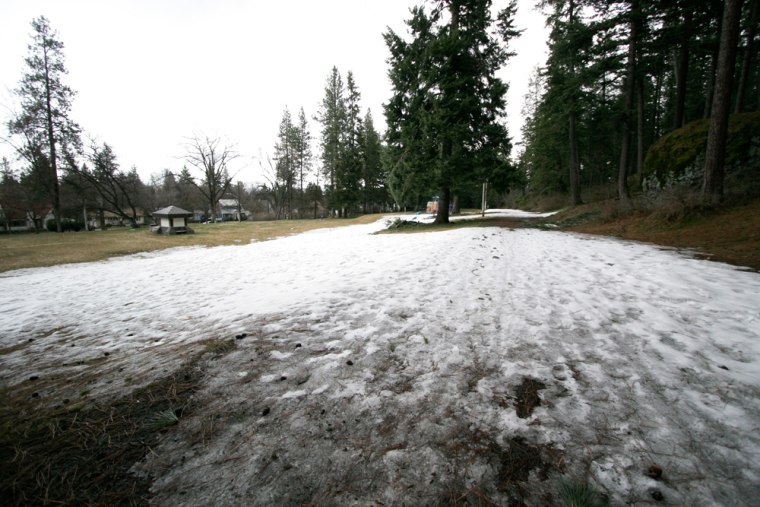Steve Bodnar and his colleagues hear plenty of begging these days.
They're not lottery winners. They're meteorologists for the National Weather Service.
"We get a lot of, 'Make it stop. No more snow, please,'" said Bodnar.
The Inland Northwest remains locked in the grip of the second snowiest winter in its history, with more snow on the way.
The city's golf courses remain closed. The deadline to remove studded snow tires was pushed back a week. Area ski hills are still open.
About the only people happy with the snow are Spokane police, who were able to follow footprints in the snow last week to arrest a man accused of abandoning a stolen car after a chase.
So far, 89.5 inches of snow have fallen on Spokane during the winter of 2007-08. That includes 1.7 inches last weekend, after city schools were closed for "spring" break.
The only winter with more snow was in 1949-50, when 93.5 inches were recorded.
Last weekend's snowfall pushed this winter past the 89 inches recorded in 1974-75.
Snow fell on Spokane starting around Thanksgiving and has stuck around since, except for an occasional short thaw. The city of 200,000 was walloped by 13.7 inches during a 30-hour storm over the weekend of Jan. 26-27.
This winter, Spokane schools closed for four snow days, which is very rare. U.S. 195 from Spokane to Pullman was closed for the first time in decades. So much snow fell in the mountains that hungry moose showed up in large numbers in people's backyards, prompting the state to warn residents to stay away from the big animals.
Winter isn't exactly dwindling away.
March was the second snowiest on record, with 15.8 inches.
Below normal temperatures are expected to creep into the more seasonable 60s by this weekend. But Bodnar said more snow is forecast for next week.
"We will have another trough of cooler air and a storm system from the northwest, possibly by next week," Bodnar said. "I couldn't count (winter) out yet."
Forecasters say all the snow was caused by La Nina, a condition in which sea surface temperatures near the Equator are cooler than normal, which can push Pacific storms down from the cooler Gulf of Alaska.
